#iulus
Text
keeps pace with tripping steps
#we're gonna ignore the fact that he's supposed to be at aeneas' right#art#animation#the aeneid#aeneas#iulus#...#roman mythology#i think?#greek mythology#tagamemnon
1K notes
·
View notes
Text
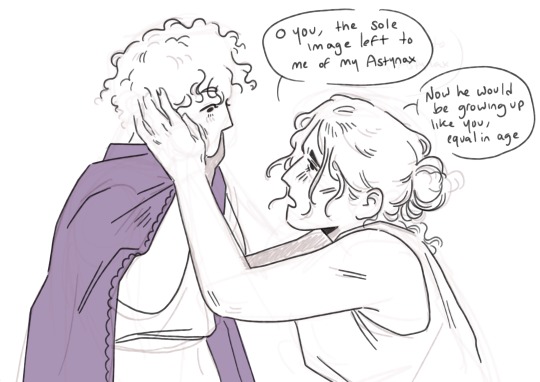
all this pyrrhus talk got my thinking about that scene in the Aeneid where Andromache meets ascanius
#Vergil was EVIL for this one#And her giving him symbols of his culture as the last Trojan heir so he remembers his heritage#And then Trojan culture getting forcibly assimilated into the Latin (Roman) one at the end anyways?? Kill me#This woman has been THROUGH IT#andromache#ascanius#iulus#the aeneid#my art#roman myth#greek myth
164 notes
·
View notes
Text
In this episode of "Quill obsesses over the Aeneid despite not having read it in like 3 years":
Ascanius and Apollo!

One day I'll learn to draw backgrounds my friends, but that day is not today.
Sooooo, this is actually a very specific scene from the Aeneid, but I genuinely do not have the physical time to go look up the context or some random quotations from said scene, so you'll just get my very bad recollection of it.
✨️ahem✨️
Alright so the Latins (Turnus' army) are attacking Aeneas' camp and Trojans are dying left and right. I literally cannot for the life of me remember what the fuck Aeneas was doing at the time, just know he's away from the camp and probably didn't know his men were failing so miserably.
Anyway, the Trojans are losing and everyone is depressed and at some point this guy named Numanus starts talking shit and saying stuff like "ah you guys got beat by that stinky Odysseus and the Atrides XD lolol", which makes the Trojans even MORE depressed.
So at this point little Ascanius/Iulus decides to take a stand, despite being like 12 and therefore being super scared, but he's just that awesome so he'll do it anyway. He grabs his bow and arrow, makes a quick prayer to the gods asking them to award his audacity, he shoots the arrow and literally fucking headshots that guy, killing him instantly.
His shot was literally so good that Apollo himself comes down to pat him on the head, before telling him to leave because he's just a child and therefore shouldn't be fighting in a literal war. He also turns to the other Trojans that were just standing around and he asks them to keep him safe, which is pretty neat.
And yeah, that's about it really.
I mean, in my drawing I decided to make it so Apollo is helping him with the arrow, he's basically steadying his arm and bettering his stance. I thought it would make sense for THE archer god (besides Artemis, obviously) to be the one to help him after his prayer, especially since be later shows himself to him to tell him that he did awesome.
#the aeneid#apollo#ascanius#iulus#trojan war#greek mythology#ancient greek mythology#aeneas#roman mythology
86 notes
·
View notes
Text
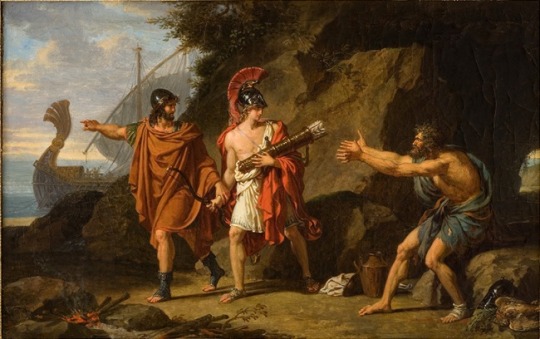

Neoptolemus: Achilles's son, brought in to finish the Trojan war after his dad died. Logically, this kid has gotta be fifteen at the most. I know he's often depicted as older but Achilles wasn't on Scyros for long enough for Neoptolemus to be even in his late teens. He does help end the Trojan War, though, presumably by being young enough and not having heard Odysseus's Horse Plans for the eightieth time.
Ascanius: Listen, I won't lie. Ascanius gets in by the skin of his teeth -- his role in Greek mythology is minimal, pretty much solely as Aeneas's son. His role in the Aeneid is much larger and he should, by most metrics, be disqualified -- however, he is, technically, a figure in Greek myth. He helps found Rome or whatever, that's not my purview.
27 notes
·
View notes
Text

#i mean that's young even for ancient times#poor aeneas only dying in his late 30s#also pretend this says venus not aphrodite i lost my head for a bit#aeneas#virgil#Virgil's Aeneid#The Aeneid#iulus#ascanius#aphrodite#venus#Roman Mythology#rome#roman gods#roman epic#classics#classics memes#classical civilisation#memes#meme muses#premium odysseus#odysseus x aeneas#odysseus premium
34 notes
·
View notes
Text
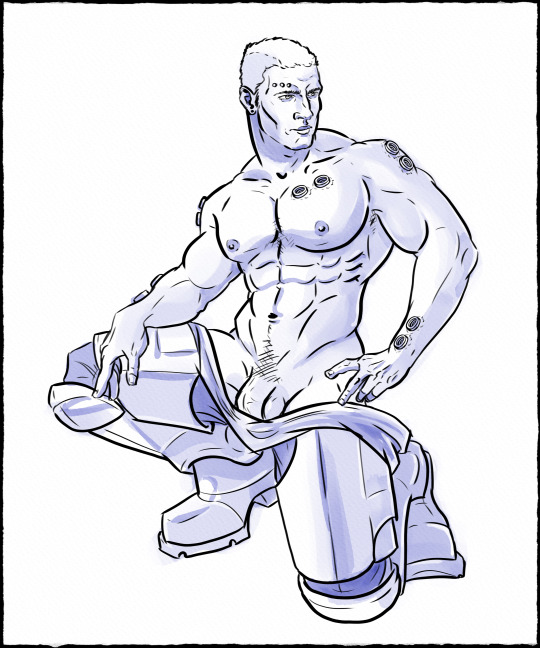
Time for some meat on the menu: Iulus Fennion.
Someone makes me read all the Ultramarines books and so far I instantly latched onto Chaplain Elianu Trajan (fuckin' bitch. I love him) and Iulus, Sergeant of the Immortals.
His face was about as uncompromising and rigid as a Space Marine’s could get. Scipio had seen rocks with more character.
Nick Kyme, Assault on Black Reach
69 notes
·
View notes
Text
Need to stop thinking of compelling (To Me) research papers to write for example the one I’ve been thinking about all day which is the concept of the divine as framed in Greek theater/divinity in ancient literature / concepts of divinity appearing in disguise in the ancient world (for example Dionysus in Bacchae, Cupid in Aeneid, maybe a little Gilgamesh, etc.)
#idk I was thinking today specifically about gods taking on the appearance of like. regular humans#Athena as mentor#Cupid as iulus#Dionysus as Unnamed Hot Bacchic Reveler#some of whom are like badly disguised & recognizable as A Divine Something & others who are like. better at wearing the mask#idk work was boring there was too much math involved today#pers*nal#also I Know these are almost all Greek/roman I’d expand obv. this is just. my discipline. u know
4 notes
·
View notes
Text

Illustration of a scene from Book 12 of the Aeneid: the physician Iapyx removes an arrowhead from the thigh of Aeneas, while Aeneas' mother Venus and weeping son Ascanius/Iulus look on. Fresco from the House of Sirico, Pompeii; now in the National Archaeological Museum, Naples.
#classics#tagamemnon#Ancient Rome#Roman Empire#illustration#Virgil#Vergil#Aeneid#The Aeneid#classical mythology#Roman mythology#Aeneas#art#art history#ancient art#Roman art#Ancient Roman art#Pompeii#Pompeiian art#fresco#Roman Imperial art#NAM Naples#MAN Naples
282 notes
·
View notes
Photo
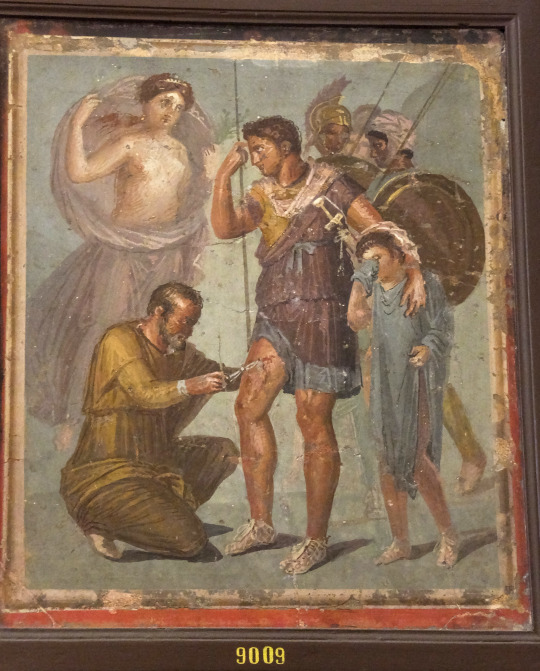
Wall painting from the House of Siricus, Pompeii.
Photo: Amphipolis .CC BY-SA 2.0 /Wikimedia Commons.
The fresco depicts a Greco-Roman mythology, the Trojan hero Aeneas, wounded in his leg during the war, being healed by the surgeon Lapix. Aeneas's mother, the goddess Venus, stands behind and Aeneas' son Ascanius weeps.
Current location: Naples National Archaeological Museum,
According to the ancient Romans, Ascanius (also known as lulus) son of Aeneas and grandson of Venus, founded Alba Longa, head of the Latin League, there he created a kingdom; the power struggle between his sons Amulius and Numitor would lead to the founding of Rome. Numitor was the grandfather of Romulus and Remus. The Julians, the clan to which Julius Caesar belonged, claimed to have been descended from Ascanius/Iulus.
Romulus, the founder of Rome, was a descendant on his mother's side of the goddess Venus, and was the son of Mars, god of war, who fell in love with Rhea Silva, the daughter of Numitor, pregnant with twins.
277 notes
·
View notes
Text
the way that Vergil always puts the name Iulus at the end of the line and also the way that the name Iulus scans as 3 syllables so it’s not pronounced like Iulius. it’s like tricking you into thinking he’s going to spondaize, it pulls you toward thinking the line sounds messed up and then you remember oh yeah it’s a Greek name, it’s pronounced weird because this guy is not Roman yet. fun little Vergil detail
#tagamemnon#meter#something something using poetic rules to interrogate the paradoxes of ethnic identity??
96 notes
·
View notes
Text
little Iulus put his hand in mine / And came with shorter steps beside his father.
Hi I'm not sure when but this line is stuck in my head and I'm going to animate something for it at some point
101 notes
·
View notes
Text
Aeneas and Creusa
As much as there is discourse on Aeneas’ part in Creusa’s disappearance, it is made clear that Creusa was indeed important to Aeneas (this is what I will personally fight Perkell on, even when I find her other opinions on the topic to be fascinating). Not only is there the mad dash to the burning city (“I’m determined to incur every risk again, and retrace all Troy and once more expose my life to danger”) and the admittance of this being “the cruellest sight” in all of the destruction of the city (her absence), but also some little details like word choices and intertextual references. So let’s talk about my favourite Aeneid couple for a moment.
(Here I use Austin’s commentary as my main source.)
I spoke a little of Aeneas and Creusa’s parallels to Orpheus and Eurydice in my first post – Creusa’s name being ‘Eurydica’ in some versions is the most obvious clue, but Creusa’s loss mirrors the way Orpheus loses Eurydice. The commentary of today’s email had a good interpretation of this parallel: they’re a bit of a reverse Orpheus and Eurydice, Aeneas loses Creusa because he doesn’t look back. But a direct parallel can also be drawn – technically Aeneas does not lose Creusa until he looks behind. There are also textual references to Vergil’s Georgics, like how Orpheus and Creusa both call their spouses “dulcis coniunx” (Aen. 2.777 and Georg. 4.465), and like i.e., Austin’s commentary points out, this is certainly no accident.
But let’s talk about those vocabulary choices now!
I also find the repetition (of Creusa’s name and the iterumque iterumque vocavi I mentioned in the last post) in the passage where Aeneas searches for her interesting. This reminds me of the last passage of Orpheus and Eurydice part in Georgics: Eurydicen toto referebant flumine ripae (‘Eurydice’ echoed the banks all along the river; 4.527), the theme of calling out for the lost wife’s name, all in vain. I don’t really have too much to say about this parallel in particular more than this (I haven’t perused Georgics closely enough to dare a further interpretation/comparison, but if someone else has please let me know your thoughts). Truly this interpretation of them, as repeating the tragedy of Orpheus and Eurydice, makes these two all the more dear to me.
Every once in a while, Vergil does this interesting register change from the language of the epic to Roman comedy. This happens a couple times in scenes featuring Creusa. In 2.739, erravitne via seu lassa resedit (did she stray from the path or sit down in exhaustion), Austin directs the focus to lassus, tired. Outside of comedy, it is rarer than fessus (though it has been used by other authors like Horace, Ennius, Lucretius, Cato and Catullus). Another example of uses of Roman comedy’s vocabulary is in Creusa’s line to Aeneas in 2.786: aut Grais servitum matribus ibo (nor will I end up as the slave of Greek matrons). Here Vergil uses a supine, servitum, that is more common in colloquial and early Latin, being especially common with Plautus. Austin’s interpretation is that this register switch, from epic Latin to a more colloquial level, makes Aeneas and Creusa seem more relatable to the audience. The conversation, with its grounded vocabulary, communicates to the Latin-speaking audience a sense of familiarity: this couple is just like us, and they talk like married couples do. The casual language communicates affection.
Creusa’s speech is overall really sweet, with her calls of “sweet husband” and trying to console him in his immense grief and finally the request to protect the love for their child. My favourite line here is lacrimas dilectae pelle Creusae (banish your tears for your beloved Creusa; Verg. Aen. 2.784) and Austin has something to say about the adjective dilectus. This is also a bit of a rare word in the Aeneid, it appears three times in total: Sychaeus is dilectus (1.344) as he is loved by Dido, and Atys is called dilectus (5.468) in relation to Iulus (poeroque puer dilectus Iulo, boyish love of the boy Iulus…whatever that means in this context), and of course here in Creusa’s speech. Dilectus is used to emphasize an especially warm and deep relationship between the characters.
One could, and will, make the observation that in Aeneas’ telling, Creusa calls herself dilecta, that she is the one who calls Aeneas dulcis coniunx – but here I think it is useful to remember that Aeneas is also the one narrating this. He may be putting words in his wife’s mouth, but he is the one choosing to speak of their marriage in these terms. Her loss is devastating (I bring up vidi crudelius again) and Aeneas never utters her name again in the rest of the epic (though Andromache mentions her, and Ascanius namedrops her in Book IX). I think that Creusa’s loss haunts the relationships he has with women in the future – he can never give himself or his love fully, as it was lost like a light breeze, a winged dream.
(Btw, Sarah Ruden translates ‘lacrimas dilectae pelle Creusae’ as ‘so weep no longer, though you love me’. Devastating. Sobbing inconsolably. Never the same again.)
Tomorrow, I’ll talk about divine Creusa and also why you should be a little unwell about her too.
#creusa#aeneid daily#the aeneid#wildkitte#a bit shorter this time#but i really am so fucking unwell about this relationship#my prof actually was the one who pointed out that aeneas never seems to really get over creusa's death does he#and that's how i choose to read the rest of the epic
31 notes
·
View notes
Text
Heeeey mootsies, so you might've noticed already but lately I haven't been all that active.
Well first of all I've been pretty busy, I'm looking after some kids to get more points on my curriculum. It's fun but it takes up most of my day so yeah.
Second of all, I just haven't been all that into classics lately. I have this terrible, terrible habit of being super into a fandom for several s (more often than not it last months at a time actually) and then just dropping it for a similar period of time.
So yeah, recently the Inazuma Eleven fan that is in me awakened and I shall be wasting away on that subreddit for a while. Going from one side of the internet that is all about ancient poems to one about a football anime aimed at middle schoolers; boy, do I wish to know how my mind works-
Anyway, as mentioned I won't be gone permanently, of course. If we're already mutuals and you feel like chatting with me you can totally write to me in my dms and I'll respond as soon as I can, but yeah, don't expect too many drawings/content from me in this next few weeks.
So yeah, I shall return.
One day.
#also my drawing of aeneas and iulus playing together blew up today#it was a pretty pleasant surprise#but yeah#quill screeches
10 notes
·
View notes
Text
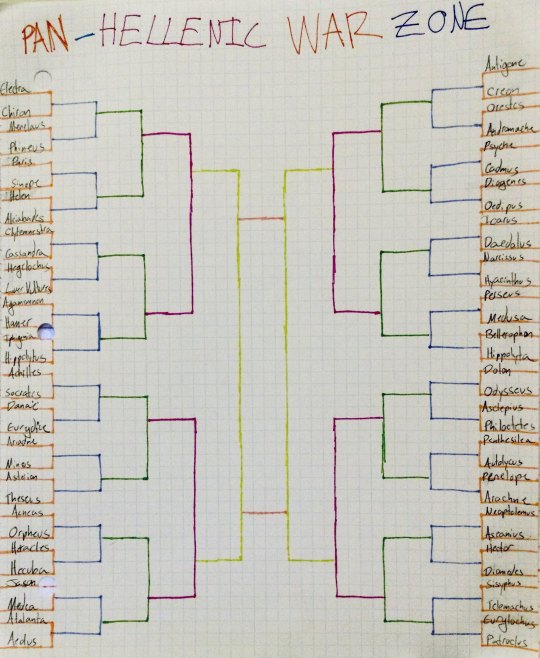
After several false starts and doubles, I've finally created the final bracket! If you see any doubles or mistakes on this, please tell me -- I think I've included all the enemies and submitted characters, but I'm still just the one person.
Voting will begin as soon as I can source good images and summaries for all the characters -- expect it to be within the week, hopefully sooner.
Full bracket under the cut in plaintext in case you can't read my handwriting.
Starting from the top left.
Electra versus Chiron.
Menelaus versus Phineus.
Paris versus Sinope.
Helen versus Alciabades.
Clytemnestra versus Cassandra
Hegelochus versus the Vultures That Eat Prometheus's Liver.
Agamemnon versus Homer.
Iphigenia versus Hippolytus.
Achilles versus Socrates.
Danaë versus Eurydice.
Ariadne versus Minos.
Asterion (The Minotaur) versus Theseus.
Aeneas versus Orpheus.
Heracles versus Hecuba.
Jason versus Medea.
Atalanta versus Aeolus.
Starting from the top right.
Antigone versus Creon.
Orestes versus Andromache.
Psyche versus Cadmus.
Diogenes versus Oedipus.
Icarus versus Daedalus.
Narcissus versus Hyacinth.
Perseus versus Medusa.
Bellerophon versus Hippolyta.
Dolon versus Odysseus.
Asclepius versus Philoctetes.
Penthesilea versus Autolycus.
Penelope versus Arachne.
Neoptolemus (Pyrrhus) versus Ascanius (Iulus).
Hector versus Diomedes.
Sisyphus versus Telemachus.
Eurylochus versus Patroclus.
70 notes
·
View notes
Text
The Aenead so far is a lot less of a shit show that the iliad. Tho only read book 1. Some notable things tho:
- Venus sprinkled her son is sexy dust
- Juno went to the winds like, yo I'll give u brood mare wife if u start a storm to kill those Trojans over there, winds went, bet.
- iulus seems to be between a year old and 13, we do not know, he says his first word after he has done archery and ridden a horse.
- oh and love is an infection.
#aeneas#virgil#roman mythology#Augustus#virgil's aeneid#aeneid daily#book 1 summary#homeric iliad#was more fun#iliad meme#i do classical civ#classical civilisation
29 notes
·
View notes
Photo


iliad 6 // aeneid 2
[Andromache stood by him weeping and taking his hand in her own. “Dear husband,” said she, “your valour will bring you to destruction; think on your infant son, and on my hapless self who ere long shall be your widow-- for the Achaeans will set upon you in a body and kill you.”
/
But see, my wife clings to the threshold, clasps my foot,
and holds little Iulus up towards his father:
“If you go to die, take us with you too, at all costs: but if
as you’ve proved you trust in the weapons you wear,
defend this house first. To whom do you abandon little Iulus,
and your father, and me, I who was once spoken of as your wife?”]
#thank you macy @suits-of-woe for this i'm going to kill you.#max.txt#aeneid daily#aeneidblogging#iliadblogging
17 notes
·
View notes